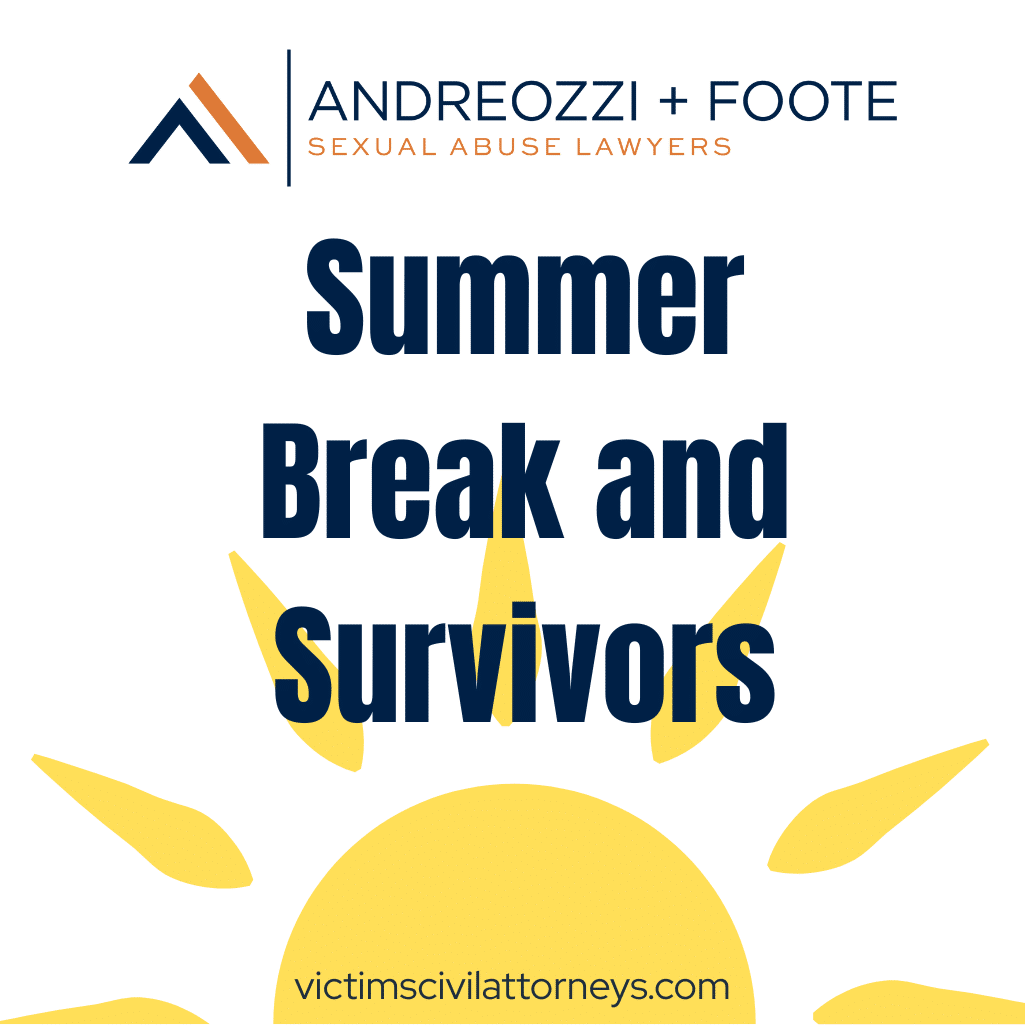Summer should be a season of lightness, laughter, and freedom. But for many child and adolescent survivors of sexual abuse, trauma, or neglect, the break from school can feel more like falling into a void than a vacation.
As someone who’s lived through the darkness and fought to reclaim the light, I know firsthand how dangerous unstructured time can be for those navigating the aftermath of trauma. When the routines vanish, the noise quiets, and the distractions fade, what’s left are the echoes—the memories, the anxiety, the hypervigilance that trauma leaves behind. This is especially true for young survivors who depend on school for structure, safety, meals, and even their only reliable adult connections.
So let’s talk about how we can turn awareness into action this summer—for survivors, their families, and the friends who stand beside them.
Why Summer Can Be Triggering for Survivors
While school may not always be a perfect or safe environment, it often provides predictability, routine, and access to trusted adults. When that structure disappears, survivors may experience:
- Increased anxiety or depression
- Flashbacks or intrusive thoughts
- Difficulty sleeping or changes in eating habits
- Regression in behavior
- Isolation or withdrawal from peers
And let’s not forget: many cases of child sexual abuse occur during summer months, when children are in new environments—camps, sports teams, sleepovers—with adults their parents may not know well. The risks increase when children are unsupervised or out of routine.
For Parents and Caregivers: Tips to Create Safety and Support
Supporting a child who has experienced trauma isn’t about having all the answers—it’s about showing up, listening, and creating environments where healing is possible. Here’s how:
1. Create a Summer Routine
Structure provides safety. Build a flexible but consistent daily routine that includes:
- Wake-up and bedtime rituals
- Scheduled meals and snacks
- Outdoor or creative time
- Screen-free connection time with family
2. Have Honest, Age-Appropriate Conversations
Talk with your child about body safety, consent, and boundaries—especially before new summer activities or time away from home. Practice phrases like:
- “You can always come to me if something doesn’t feel right.”
- “You don’t have to hug or touch anyone if you don’t want to.”
- “Your body belongs to you.”
3. Vet Every Camp, Coach, or Caregiver
Ask questions. Trust your instincts. Review background checks. Speak to other parents. Ask programs what policies they have around supervision, training, and reporting misconduct. A reputable program will welcome your questions.
4. Watch for Silent Signs
Trauma doesn’t always scream. Sometimes it whispers through a change in behavior, avoidance of certain people, or increased clinginess. If something feels off, don’t dismiss it. Lean in.
5. Model Calm and Control
Kids mirror our nervous systems. When they’re dysregulated, the best gift we can give them is our calm presence—not our panic. Pause. Breathe. Then respond.
6. Create a Coping Toolkit Together
Help your child build tools they can turn to when overwhelmed:
- Breathing exercises
- Journaling or drawing
- Sensory objects (fidget toys, soft blankets, music)
- Safe person list (trusted adults they can talk to)
For Friends of Survivors: How to Be a Safe Harbor
Not every child turns to a parent first. Sometimes, it’s a best friend, a sibling, or a teammate. If you’re a young person who’s close to someone who has experienced sexual abuse or trauma, you have the power to be a lifeline. Often times people do not know what to say and out of discomfort they often say and do the wrong thing. Here’s how:
- Believe Them. Even if you’re shocked or scared, say, “I believe you. I’m here for you.”
- Don’t Pressure Them to Tell. Let them open up at their own pace. Respect their boundaries and privacy.
- Encourage Them to Get Help. Gently encourage talking to a trusted adult or professional—but never force it.
- Take Care of Yourself, Too. Supporting a friend who’s in pain is heavy. You’re not alone. Talk to someone you trust.
If someone confides in you and you believe they’re in danger or being hurt, you must tell an adult. This isn’t about betraying their trust—it’s about protecting their life.
The Role of Civil Lawsuits in Justice and Healing
Survivors deserve more than just support. They deserve justice.
At Andreozzi + Foote, we know that civil lawsuits can be a powerful part of a survivor’s healing journey. While the criminal system often fails to act or imposes impossible timelines, civil law empowers survivors to reclaim their voices, hold institutions accountable, and seek restitution for the harm they’ve endured.
If you or someone you love is ready to explore their legal options, know that it’s never too late to seek justice. Our team is trauma-informed, survivor-centered, and here to walk this road beside you.
Final Thoughts for Survivors in the Summer
Summer doesn’t have to be scary. With the right support, it can be a season of healing, growth, and connection. Whether you’re a parent, a caregiver, or a friend—your presence matters. Your actions matter. Your belief in the survivor in your life might just be the light they need to make it through.
And to every survivor reading this:
You are not what happened to you. You are what you choose to become next. And you don’t have to do it alone.
Resources:
- RAINN
- Childhelp National Child Abuse Hotline: 1-800-4-A-CHILD (1-800-422-4453)
- National Suicide Prevention Lifeline: 988
- The Trevor Project -LGBTQ Hotline, Chat and Text Lines



